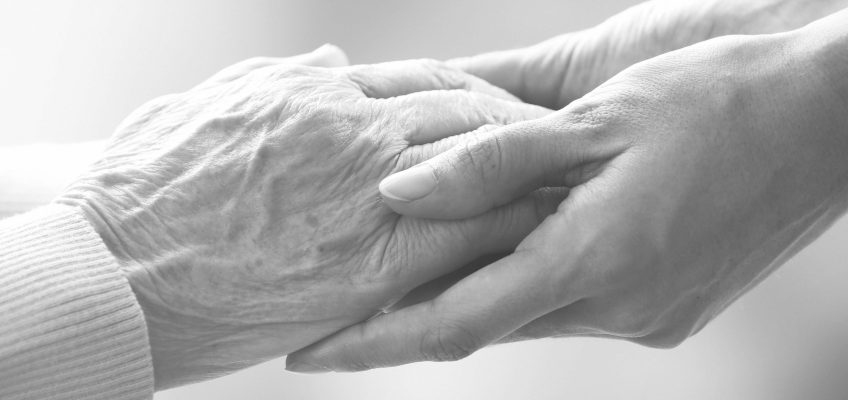Most of us want to help our neighbors when we can. And often we have very specific ideas about what kind of help is needed. These assumptions can actually work against us, leading to false hypotheses that create conflict rather than benefits. Here’s an example of how one community practiced creative courage and deep discernment to provide better services to caregivers in one community:
For three years, I’ve been part of a group working to establish respite care for people who are primary caregivers for relatives with Alzheimer’s or other forms of dementia. Our efforts are rooted in proactive compassion. People don’t expect to have spouses or parents become dependent and childlike and those who become caregivers are often overwhelmed. Without respite care, family caregiving may not be sustainable.
Our team started by gathering information about our county—both anecdotes about people who needed such services and statistics about the number of people who might benefit. We investigated resources from national organizations like the Alzheimer’s Association. We contacted specialists in our community from the Wood County Office on Aging and the Institute for Optimal Aging at Bowling Green State University. We also reached out to people who were running successful programs elsewhere.
Given the resources available to us, we hypothesized that a monthly respite care program would be a good first step. So we began offering a day, once a month, when caregivers could bring their loved ones to a community center where they would be safe and happy while the caregivers tended to their own needs.
We were very pleased with the program we developed, but during the first months, only half a dozen people took advantage of what we were offering. So we advertised more heavily, with materials designed to reach our target audience. We increased the frequency to twice a month, but attendance didn’t improve much.
By this time, some of us were feeling frustrated. We were trying our best to do a good thing and it wasn’t working. This is the point at which projects often fall apart because people blame each other for the failure. In this case, however, we applied creative courage—abandoning a hypothesis that was obviously failing without giving up on our larger goal.
The target population for respite care changes over time. Some people who appear to have Alzheimers or dementia actually have a condition that can be remedied by treatment or adjusting medications. In other cases, the caregiving needs really are beyond what can be provided at home so a residential placement is a better option.
Still, it seemed as though there were a sizeable number of caregivers in need of respite care, and we decided to take a different approach. Instead of assuming that we know what they wanted, we decided to ask them directly. We invited caregivers in the community to a 2 hour meeting. We offered professional care for their loved ones, and we provided food. We planned to practice deep discernment, asking them to share their perspective about the services that would be most valuable to them.
With heavy advertising, we thought me might attract 15 caregivers. Pre-registration was slow. But, when the day of the meeting arrived, 19 caregivers and their loved ones showed up. These people had a lot to say and they really wanted to be heard. They hadn’t participated in the program we devised because they were skeptical about whether it would be attuned to their needs. And they were unsure about whether their loved ones would be comfortable in an unfamiliar environment, even if it was carefully planned.
Once we made it clear that we were ready to listen, the caregivers were eager to share their concerns and fears as well as their feelings of isolation. When people find themselves in a situation they didn’t anticipate, they generally feel deeply vulnerable. Others may have faced the same challenges, but if people don’t have ready access to that expertise, they are likely to feel very lonely—“I’m going to have struggle through this all by myself.”
In our group, we had bystanders–people who weren’t facing the intense needs of caregiving. They had the time and patience to search out compassionate, knowledgeable experts in other parts of the country. We used the insights of those professionals to devise a survey, proposing services that might be useful to caregivers.
This turned out to be a winning combination. First, we listened intently and respectfully to what caregivers had to say. And then–only then–we asked them to fill out the survey, checking off services they thought they might use and providing additional feedback. The result is a new plan that’s likely to serve the needs of more people because it’s been designed by them.
In Cooperative Wisdom, we make the point that “best practice” is only best under very particular circumstances. In order to address the specific vulnerabilities in a specific community, the people who are directly involved need to be enlisted. In our community, we are closer to having a program that really works for caregivers because we integrated three components: the good intentions of volunteers committed to the well-being of the community, the expertise of specialists who treat people with Alzheimer’s and the unique insight of caregivers themselves.
So, the next time you find yourself frustrated because the good thing you’re trying to accomplish isn’t working out, exercise creative courage by acknowledging the failed hypothesis. Then expand the team to include more voices and then listen—truly listen—to discern what really matters to them. Integrating more perspectives into a cooperative project is one of the best ways make it strong and sustainable.
Don Scherer


Leave a Reply